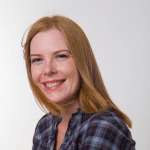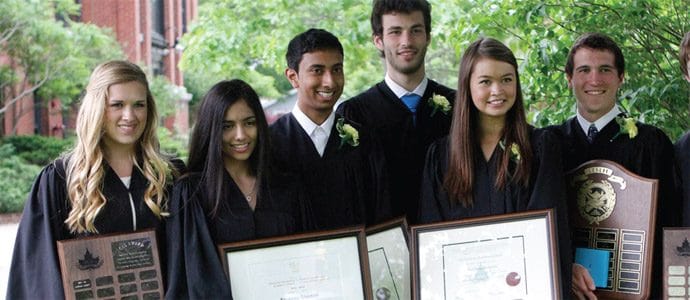Uncategorized
4 min Read
Above and Beyond – the importance of university prep

February 24, 2016
Uncategorized
4 min Read

February 24, 2016

Jack McKenzie started in university in September. He is glad he got into the program he wanted at Queen’s University in Kingston, Ont.
One of five children, Mckenzie attended Rothesay Netherwood School in New Brunswick. He says the school’s university counsellors were a huge help in making the application process easy to navigate.
“They tell you exactly what to do, exactly how to get into the program you choose. And they also have deadlines to keep you on track, so you’re always organized.”
Jack’s mother, Debbie Mckenzie, says she liked how involved the counsellors got, including going through the applications with him in detail.
“The parent can be as involved as much as they want to be,” she says.
Heather Johnstone is Head of Guidance at Havergal College, an all-girls kindergarten to grade 12 school in Toronto that has a 100 percent university acceptance rate.
Johnstone says university counselling at Havergal begins as soon as a student enters senior school, with dedicated counsellors for grades nine and 10.
“They don’t need all the nitty and gritty information then,” she says, but they do need to know basic information about university, such as preparing for the standardized testing needed for international applications, and an awareness of which courses can’t be dropped if there’s interest in certain programs. This could be relevant for second language courses, for example.
“The grade nine, 10 counsellors start those discussions early on,” says Johnstone. “By the time the student comes to grade 11, we’ve established an idea of what their aspirations are.”
The guidance department runs an application workshop with the grade 10s and 11s so they can become familiar with the application process.
Johnstone says the grade 10 counsellors also meet with each student on course selections.
“They have those discussions, like ‘are you thinking about science, because if you are, when you go into grade 11, you need to have these courses’.”
Separate university counsellors work with grades 11 and 12 students. Near the end of grade 11, students take home a sheet to work on during the summer. In grade 12, the guidance department at Havergal runs parent information evenings and application workshops.
All students have a teacher advisor. In grade 12, advisors meet with their group of pupils for meetings over lunch. “We keep them on track with deadlines, give them scholarship information, we keep them up to date on everything,” says Johnstone.
After October, Johnstone and her guidance colleagues counsel the kids every two weeks until Christmas. After certain deadlines pass in January, they meet with students every month, “just to check in,” says Johnstone. “And there’s a lot of individual counselling on top of that.”
University counselling doesn’t end there. Johnstone says grade 11 students go on formal campus tours by bus to universities to see what the schools have to offer.
They also host representatives from universities around the world who talk to the students – sometimes even evaluating applications on the spot.
High marks and course selection are not everything when it comes to getting into university these days.
“It’s not just about the academics,” says Blayne Addley, Headmaster of Halifax Grammar School, which goes from junior primary to grade 12.
“It’s a balanced approach. We have a strong arts program, athletics program, and a very strong commitment to service.
“While students engage in those programs for all of the right reasons, the reality is that’s what universities are looking for.”
Private school students are required to get involved in a myriad of extracurricular activities. Jack Mckenzie thinks his role in his school’s Enviroclub helped him get into his environmental science program. “It helps on your university application, and will definitely help with resumes.”
“They’re looking for that well-rounded student,” says Addley.